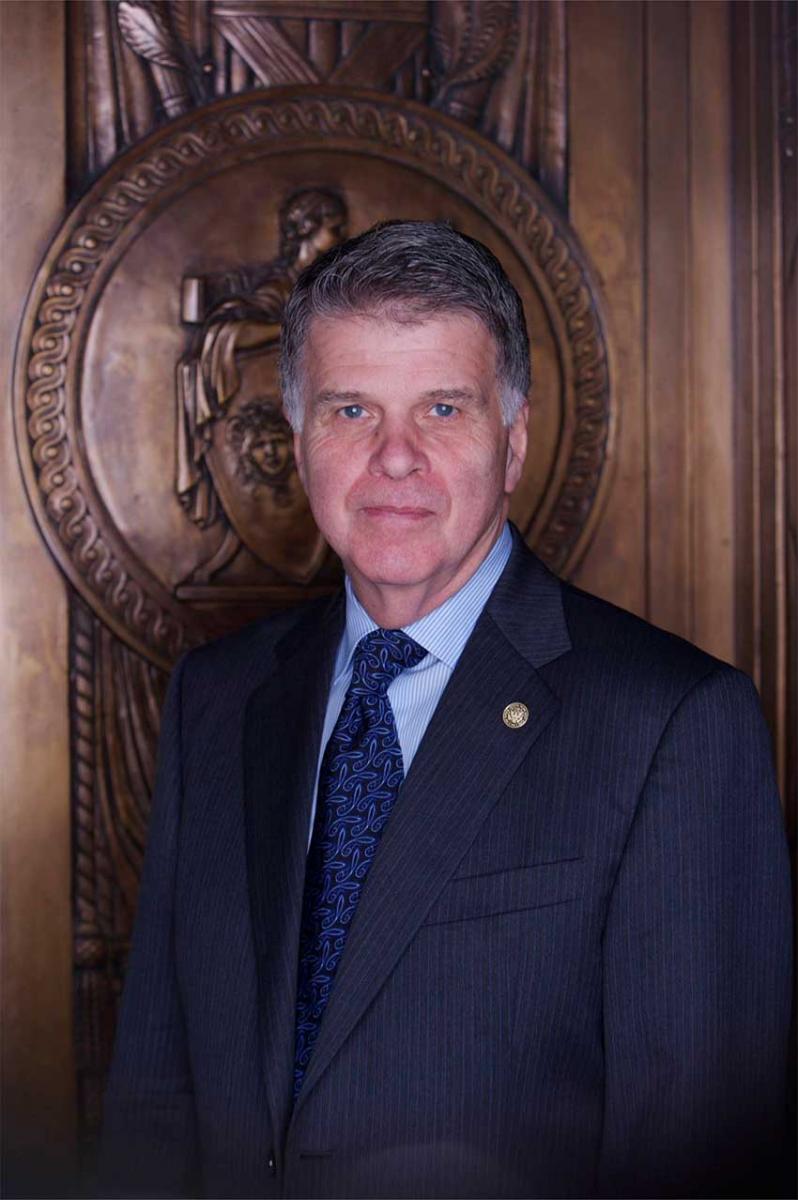
Prepared Remarks of Archivist of the United States David S. Ferriero at the National Declassification Center Open Forum, National Archives Building.
June 23, 2010
Good afternoon.
I am David Ferriero, Archivist of the United States, and welcome to the National Archives and to the William G. McGowan Theater.
I would also like to welcome those who are watching by way of a live webcast.
We’ve called this Open Public Forum to discuss the draft prioritization plan of the National Declassification Center, or NDC.
This is what will serve as our roadmap in processing the backlog of 400 million pages of classified documents. The goal is to get as many of these documents as possible on the open shelves -- as quickly as possible --for researchers, journalists, historians, government officials and the public.
Our deadline is December 31, 2013.
Many of these documents include information about military operations and World War II, the Korean War, and the Vietnam War. All of this information is of great interest to historians of this period. Several weeks ago, we published the draft plan on our website www.archives.gov/declassification/prioritization-plan.html and invited comment on it through email or on our new NDC blog, blogs.archives.gov/ndc.
First, a little background is in order.
On December 29, 2009, President Obama signed Executive Order 13526. Section 3.7 of the Order directed me to establish, within the National Archives, the National Declassification Center. Its aim, among other things, is to streamline declassification processes in several ways.
First, it is to prioritize the declassification of sought-after records—to decide which ones get processed first. That’s what we’ll be talking about today.
Second, it is to facilitate the referral processes and quality assurance measures—to speed up the process while maintaining our high performance standards.
Third, it is to implement standard declassification training for records determined to have permanent historical value. There are currently some 2,000 different sets of declassification guidelines throughout the government, which has made the records processing more difficult.
At the time of the President’s order I said, and I want to repeat today:
The Federal government has reached a watershed moment in records declassification.
This backlog is so huge that Americans are being denied the ability to know what their government officials did and to hold them accountable for those decisions and actions.
By streamlining the declassification process, the NDC will usher in a new day in the world of access, where the National Archives can make more records available for public scrutiny much more quickly.
I am pleased to announce that this work has begun.
NARA and our agency partners have established and are implementing new processes designed to eliminate the backlog of reviewed Federal records and more efficiently review referrals in Presidential materials.
We have also hosted an @quot;all hands" equity recognition training seminar that was attended by more than 250 declassification professionals from across the government. We are now developing additional training.
In the coming months we will be issuing progress reports to the President and to the American people.
Today, we’ve come together to get your input on how we prioritize our work.
Our panelists will provide an overview of the NDC processes and discuss how prioritization will be applied to Federal records and Presidential materials. They will respond to pre-submitted comments and questions, and then discuss comments or suggestions that you may have today.
Following this meeting, comments and suggestions will be compiled and published on the NDC Blog. We will also consider this input when finalizing the plan. Once finalized, we will publish the Plan on our website, provide updates on the Blog and website, and post follow-up discussion topics on the Blog.
I look forward to a lively discussion today and hope this will be the beginning of an ongoing dialog as we work toward @quot;releasing all we can, protecting what we must."
We are fortunate today to have such a distinguished panel of three experts on declassification past, present and future.
Sheryl Shenberger became the first permanent Director of the NDC on June 7, 2010. Prior to that she spent several years at CIA where she was involved with the declassification of both Federal and Presidential records.
Michael Kurtz has been at NARA since 1974 and is currently the Assistant Archivist for Records Services--Washington, DC. He was the Acting Director of the NDC from its establishment and is chair of the Inter-agency Senior Steering Group that advises the NDC on policy issues.
Beth Fidler is a senior archivist in the office of Presidential Libraries where she has worked on declassification issues for many years. She works with agencies on the Remote Archives Capture project and represents Presidential Libraries on the NDC’s Program Management Team.
Please join me in welcoming our panelists.
(At the conclusion of the event, the Archivist spoke again)
I’m afraid time is up for today.
I want to thank our panelists for coming today and shedding light on what we’re doing at the NDC. And I want to thank all of you who have come—as well as those viewing by webcast—for your interest in this very important area.
I encourage you to check our website and follow our progress.
And if you have more questions or comments, send them to NDC@nara.gov, and join the conversation on the NDC Blog.
 The Archivist of the United States is the head of our agency, appointed by the President of the United States.
The Archivist of the United States is the head of our agency, appointed by the President of the United States.